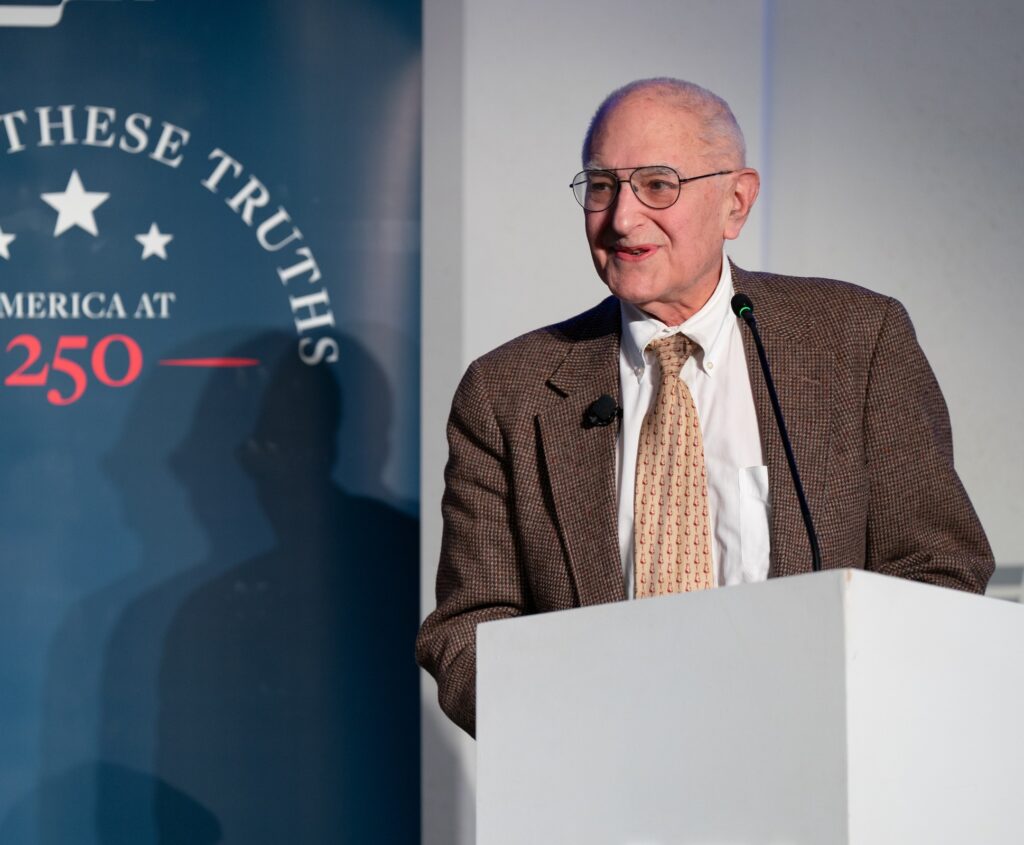
July 4, 2026, will mark the 250th anniversary of the Declaration of Independence and, therefore, of the United States of America. Much was new about the American republic when the founders launched it. Theirs was among the first successful colonial revolts in the known history of the world. It created the first modern democracy and modeled a new form of liberal republicanism that had barely been theorized, let alone enacted before. But the founding was also distinct, and the nation it brought forth has been, too, for its rootedness in a particular philosophy of society and ultimately of the human person.
The Declaration of Independence was a political statement, and the founding was a political act, but both were therefore also inextricably connected to a set of philosophical principles. And in declaring those ideas, the founders of the United States also declared them to be rooted in a conception of nature. “The Laws of Nature and of Nature’s God entitle” the nations of the world to assume separate and equal stations among one another. Those laws, in turn, point to a set of propositions about the character of politics and of society. The Declaration states these compactly and powerfully in its famous second paragraph:
We hold these truths to be self-evident, that all men are created equal, that they are endowed by their Creator with certain unalienable Rights, that among these are Life, Liberty and the pursuit of Happiness.—That to secure these rights, Governments are instituted among Men, deriving their just powers from the consent of the governed,—That whenever any Form of Government becomes destructive of these ends, it is the Right of the People to alter or to abolish it, and to institute new Government, laying its foundation on such principles and organizing its powers in such form, as to them shall seem most likely to effect their Safety and Happiness.
This declaration of principles invites a host of questions. Just what is the connection between these truths and the right by which nature and God are said to entitle nations to independence? And just what is their connection, in turn, to the relations of individual citizens and their societies? The rights with which all men are said to be endowed seem at first glance like purely individual rights, yet the Declaration of Independence speaks on behalf of a nation and asserts that each nation derives its right to its place in the world from some natural and divine source. Nations are said to be equal just as individuals are. What connects these two bearers of rights—the individual and the community—and which is prior and preeminent?
These questions and countless related ones have given form to the politics of the United States since the founding, and they were of course crucial to what brought about the founding to begin with. They are essential to better understanding the character of our society, yet they remain perplexing and demanding.

Better understanding the character of our society is precisely the purpose of the American Enterprise Institute’s “We Hold These Truths: America at 250” initiative, an ambitious celebration of the founding, of which this volume forms a part. Over several years leading up to the anniversary of the Declaration of Independence, we are inviting scholars both within AEI and from other institutions to take up a series of themes important to understanding the American Revolution. These scholars represent a variety of fields and viewpoints, so they will approach each of these themes from various angles. The papers they produce will be published in a series of edited volumes intended to help Americans think more deeply and clearly about our nation’s origins, character, and prospects.
Natural Rights, the Common Good, and the American Revolution is the fourth of those books. Its chapters began as papers presented at an AEI conference held in Washington, DC, on December 2, 2024. Other volumes in the series consider the American Revolution in relation to other themes, such as democracy, religion, the legacy of slavery, and the Constitution. In each case, our goal is to help reintroduce readers to their nation’s history, thereby enabling them to maturely appreciate the reasons for celebrating the extraordinary milestone of its 250th anniversary.
In the chapters that follow, five eminent scholars of history, philosophy, law, and government consider how we ought to understand the place of natural rights and the meaning of the common good in the American Revolution and the life of the nation it produced.
Robert P. George lays out the natural law foundations of the arguments advanced in the Declaration and sketches the ideal of the common good that emerges from considering the founding in their light.
Charles R. Kesler examines the ways in which the text of the Declaration of Independence was altered by its assorted congressional editors and shows how these changes highlight the Declaration’s classical character and purpose.
Michael Zuckert details the structure and substance of the argument put forward in the Declaration’s immortal second paragraph. He suggests that it marks not only the document’s philosophical premises but also its political ambition.
Daniel E. Burns contends that attributing the political philosophy of the Declaration and the founding primarily to John Locke misrepresents both Locke and the founders—and so obscures the genius of American political ideas rather the clarifying it.
And Janice Rogers Brown elucidates the founders’ conception of the pursuit of happiness. She explores how our nation has strayed from that conception and so has too often put happiness, properly understood, beyond our reach.
The scope of these arguments helps to show just how foundational the questions surrounding natural rights and the common good are to the American political tradition, and so how essential they are to what we celebrate when we mark the 250th anniversary of our extraordinary nation.


